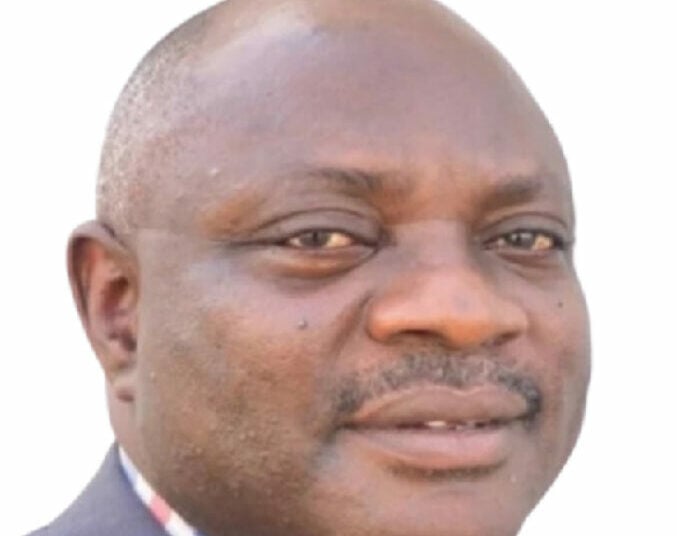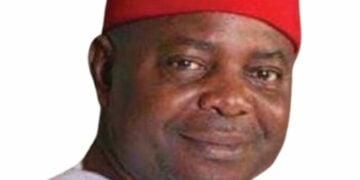During my recent visits to the Nigerian Shippers’ Council (NSC), I witnessed an institution undergoing a profound transformation. From dusty bureaucracy to digitized efficiency, from reactive posturing to strategic leadership, the NSC today reflects a powerful synergy between visionary leadership, ministerial support, and presidential will.
At the centre of this transformation is Dr. Pius Akutah, a reform-minded Executive Secretary who has not only redefined the operational culture of the Council but has also leveraged the full backing of the Honourable Minister of Marine and Blue Economy, and by extension, the unwavering support of President Bola Ahmed Tinubu.
These achievements are not unfolding in isolation. They are the outcome of a clear alignment between agency leadership, ministerial policy direction, and a presidency committed to economic revitalization; especially in the maritime and logistics sectors.
Presidential and Ministerial Backing: The Game Changer
Dr. Akutah’s tenure at the NSC reflects what is possible when a chief executive has both the political cover and strategic support to deliver. The Honourable Minister of Marine and Blue Economy has remained accessible, collaborative, and fully in sync with the Council’s mandate. Policy decisions are no longer bogged down by red tape. Instead, they move swiftly, aided by a shared vision of transforming Nigeria into a globally competitive maritime hub.
At the highest level, President Tinubu’s commitment to trade facilitation, infrastructure renewal, and ease of doing business has provided the national atmosphere necessary for reform to flourish. Without this coordinated governance approach, many of the visible results at the Council would remain mere plans on paper.
Key Milestones Under Akutah’s Watch; Powered by Support and Strategy
1. Digitization of Port Regulation
With institutional greenlight from the Ministry and support from Presidency-led ease-of-doing-business reforms, the Council is now implementing end-to-end digital workflows that are fast replacing bottlenecks in cargo clearance.
2. Cost Regulation and Port Efficiency
In line with federal economic priorities, the NSC has taken bold steps to combat arbitrary port charges, level the playing field for shippers, and boost Nigeria’s competitiveness within the region.
3. Operationalizing Inland Dry Ports
Thanks to streamlined intergovernmental collaboration, particularly with subnational governments, the Council is breathing life into Inland Dry Ports (IDPs), decongesting seaports and boosting regional trade.
4. Stakeholder Reorientation and Professionalism
Internally, the Council is undergoing a cultural renewal; staff discipline is up, morale is high, and training programs are rolling out under a merit-driven system with backing from the Ministry. I am aware, in a short while, another training on Ports economics will be held to build capacity and enhance service delivery.
A Model State/Federal Collaboration: The Abia, Oyo, Plateau, and Nasarawa States example.
Perhaps the most striking examples of this new approach to reform is the collaborative partnership between the Nigerian Shippers’ Council and the Government of Abia , Oyo, plateau, and Nasarawa states. Under this arrangement, the Council is working closely with the state to revive, Inland Dry Ports(Plateau, Nasarawa etc, Truck Transit Parks(Oyo)trade corridors, optimize logistics channels, and empower local exporters.
This model; where federal agencies actively support and are supported by state governments; is yielding real results in these few states. It is a blueprint other governors must adopt if we are serious about leveraging our port economy for job creation, industrialization, and export-led growth.
The truth is that maritime and trade development can not be sustained by federal action alone. It requires ground-level implementation, infrastructure, and political will from state governments.
Calling on Governors: Partner, Don’t Watch
It is time for other state governors to take a cue from Abia, Oyo, Plateau, and a few other states. The Shippers’ Council is not just a federal regulator; it is a partner in economic development. Governors must actively engage with the Council to develop inland ports, establish logistics parks, support local SMEs, and plug their states into Nigeria’s fast-expanding trade grid.
With the President and his minister providing the enabling environment, there are no more excuses for inaction at the state level. Where governors collaborate, progress will follow.
Conclusion: Progress Through Partnership
The transformation at the Nigerian Shippers’ Council proves one thing clearly: when a capable leader is empowered by his minister, backed by his President, and embraced by state governments, reform becomes inevitable.
Dr. Pius Akutah is making the most of this moment; driving change, restoring confidence, and repositioning the Council as a cornerstone of Nigeria’s economic renaissance.
We must now ensure that these reforms are deepened, decentralized, and defended across the country. The future of Nigeria’s maritime economy is no longer a promise. It is already in motion.
– Dr. Timothy Aikor writes from the Federal University of Technology, Owerri (FUTO).





